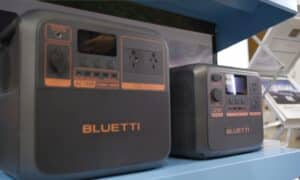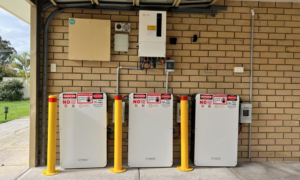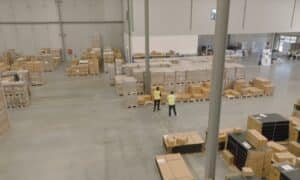Using a technology similar to printing solar cells, Xerox’s Palo Alto Research Center (PARC) has developed a process to “print” batteries with the potential for far more energy storage capacity than lithium ion batteries.
Metal air batteries, such as the lithium air battery, have the potential to to provide more energy capacity than lithium ion batteries, however this is dependent on the development of air cathodes that support the power density in order for it to be viable in applications where economy, space and weight are major issues – such as electric vehicles.
PARC says it has developed a process using co-extrusion printing to deposit thick films of functional battery materials onto substrates, which provides up to10 times the air-breathing surface area of conventional electrodes. The pastes of functional materials can contain water-repelling materials such as Teflon interleaved with hydrophilic (“water-loving”) electro-catalyst material.
The deposition can be as narrow as several microns wide and as high as several hundred microns.
PARC is interested in further developing the technology with commercialisation partners in the battery and fuel cell industries or in the materials or equipment markets that service the sector.
PARC has a long history of technology innovation and research, spanning back over 40 years. The company is also behind the second generation of solar concentrators such as those used in the solar farm at Alice Springs airport, which was the first solar electricity generation facility of its kind in the southern hemisphere.
PARC also invented “electronic reusable paper” in 2000, a thin, flexible material that can display graphics and text when an electric charge is applied to it.












































